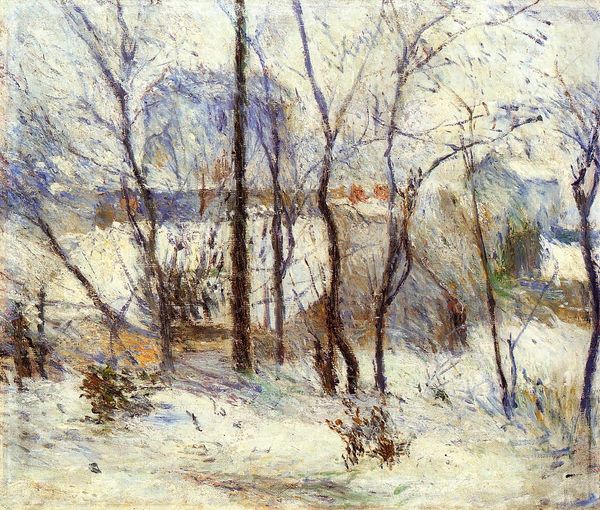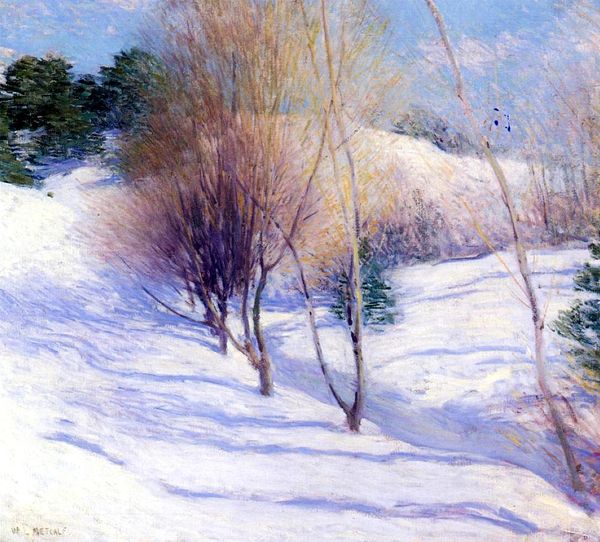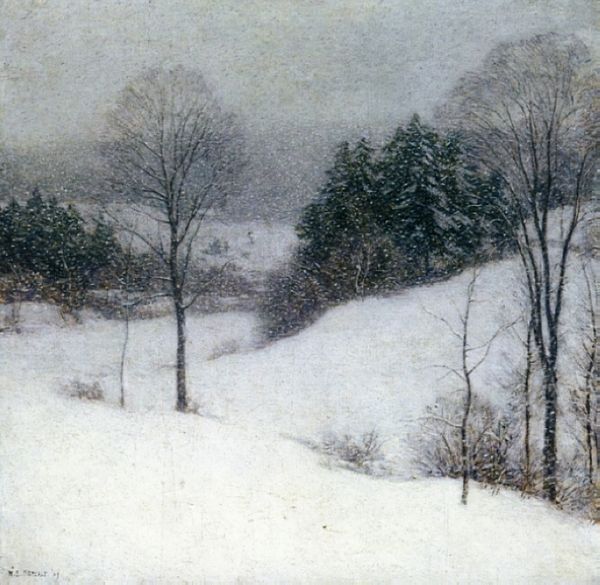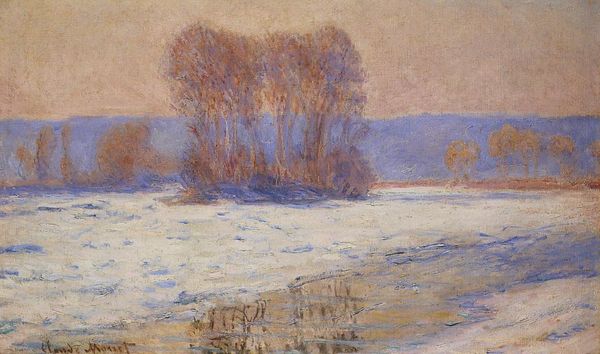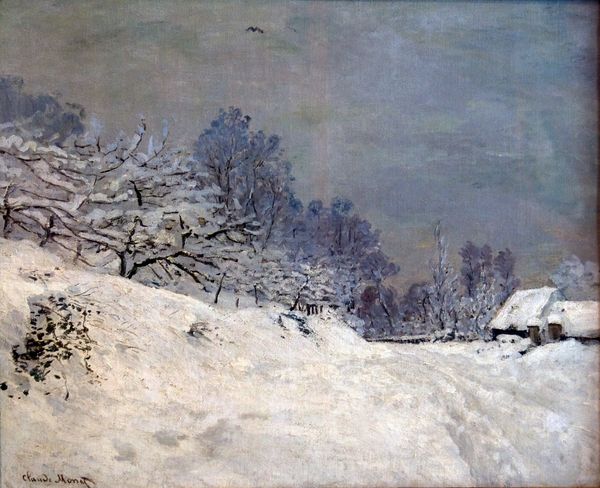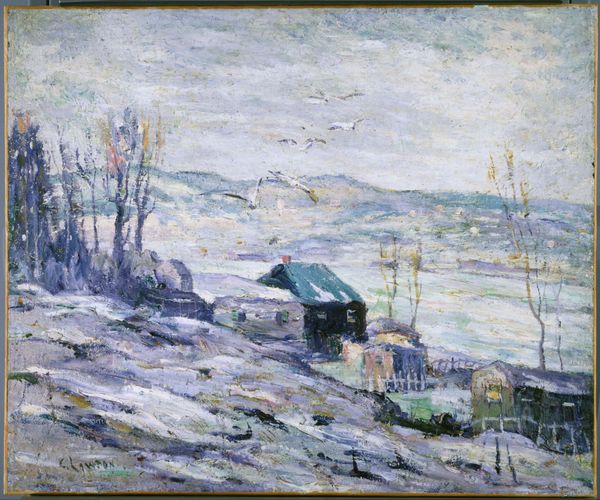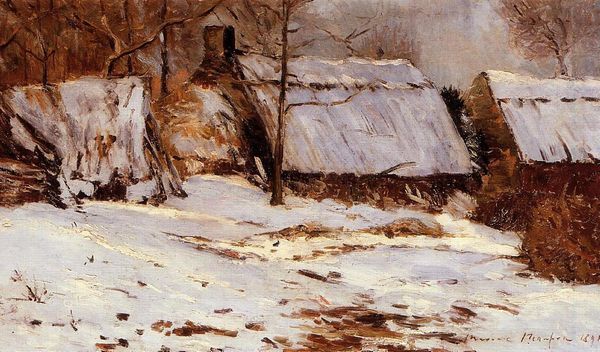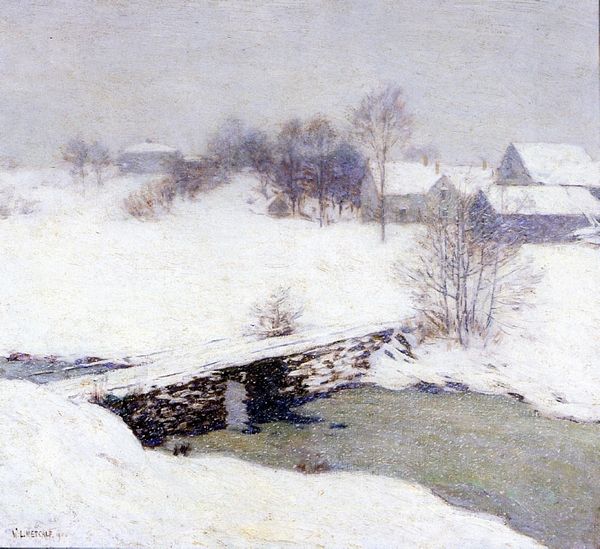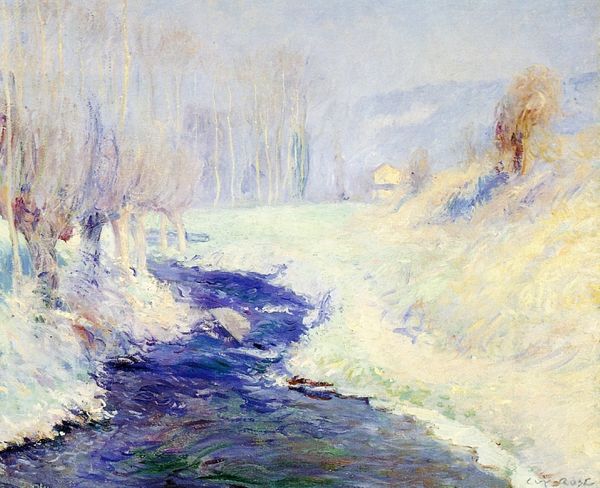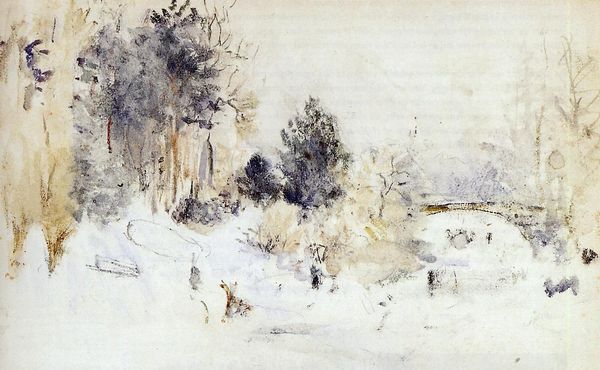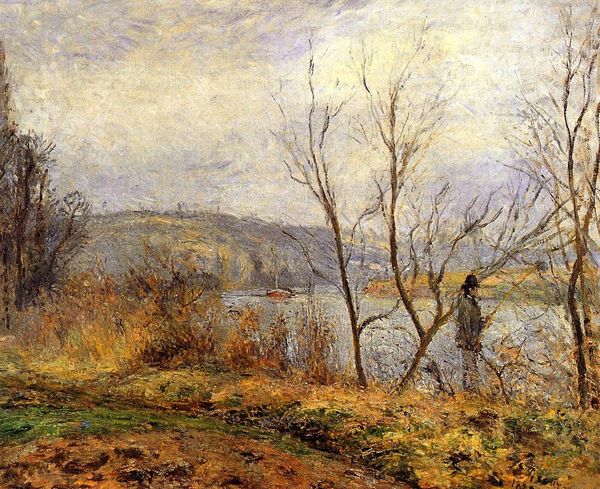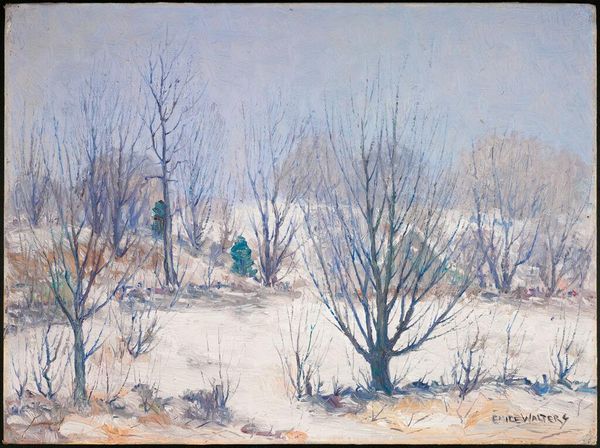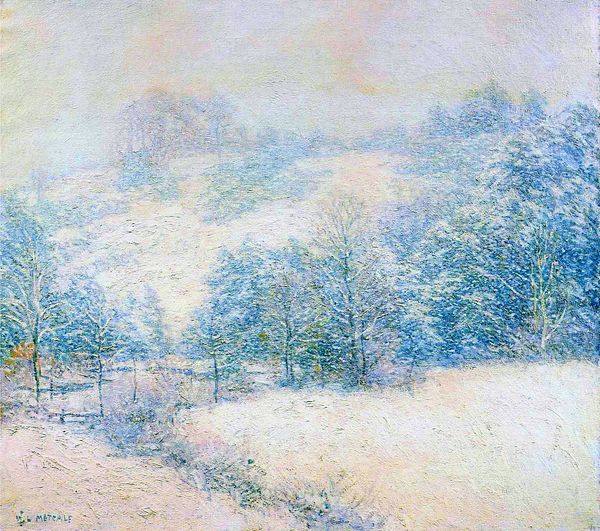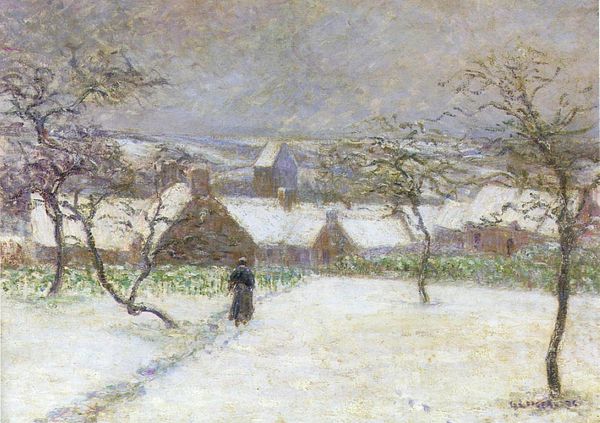
painting, oil-paint
#
tree
#
snow
#
sky
#
painting
#
impressionism
#
oil-paint
#
landscape
#
winter
#
impressionist landscape
#
natural-landscape
#
cityscape
Dimensions: 60.5 x 80.5 cm
Copyright: Public domain
Curator: Paul Gauguin painted "Winter Landscape" in 1879. You can see it on display in the Budapest Museum of Fine Arts. Editor: Immediately striking is the almost monochrome palette. Predominantly cool whites and grays evoke a palpable sense of icy stillness. The stark bare trees reach upwards in delicate contrast. Curator: Indeed, the structural composition, especially the careful arrangement of the trees in the foreground, creates a kind of visual pathway into the muted background. The painting masterfully uses light to delineate forms; it's impressionistic, yes, but grounded by Gauguin's sense of design. Let's consider the visible brushwork and what the materiality evokes about its creation... Editor: Looking closer at that materiality, the thickness of the paint and visible brushstrokes really point to Gauguin's experimentation. You can almost feel the cold of the scene and how that would affect working outdoors with oils, can't you? I wonder about the kind of brushes he used. Did he prep the canvas himself? These physical elements give the image texture. Curator: That roughness actually lends it a kind of modern tension, disrupting the traditional picturesque landscape genre that still prevailed at the time. If you look at the buildings, you will notice there is no attention to linear perspective and no interest in traditional proportions. This is no mere representational rendering of nature! It signifies a shift. Editor: Right, we should be mindful of the production methods influencing the final imagery here. These are not polished surfaces suggesting idealised views. They point to materiality as message, don't they? It's intriguing how such bleak materials contribute to such serene artistic production. Curator: And consider the way these material effects challenge our expectations of finish and polish, guiding us toward seeing value not in photorealistic illusion but in art's capacity to capture, more emotionally than realistically, a passing impression. I find its stark beauty quite moving. Editor: Me too! This return to basics really reframes ideas of natural and rural landscapes. I appreciate the lack of romanticising within this quiet landscape. It inspires consideration regarding what goes into painting as a whole, for both artist and artwork!
Comments
No comments
Be the first to comment and join the conversation on the ultimate creative platform.
